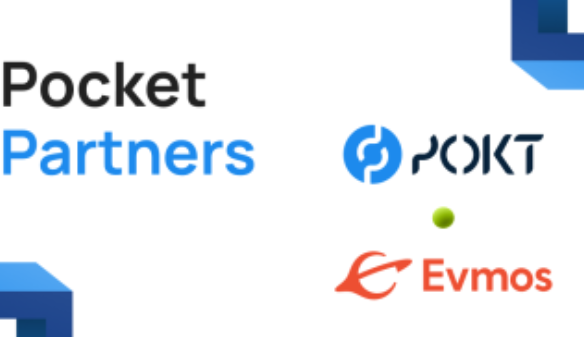
In the wave of blockchain technology, decentralized finance (DeFi) is undoubtedly one of the most potential and transformative applications. DeFi platforms provide open and permissionless financial services, enabling individuals to access a wide range of financial products without intermediaries. However, as DeFi becomes more popular, scalability and transaction processing speed have become major challenges. This article will explore how Pocket Network solves these challenges and improves the scalability and transaction processing speed of DeFi applications.
DeFi scalability challenges
Scalability is a key issue facing decentralized applications (dApps) built on blockchain networks. Traditional blockchains, such as Ethereum, have limited processing power, leading to congestion and high transaction fees during peak demand periods. As more and more users join DeFi platforms, the network’s transaction processing capabilities are put to the test, resulting in longer confirmation times and higher costs.
Furthermore, as the number of dApps and users increases, the limited scalability of blockchain becomes a bottleneck for the entire ecosystem. To realize the full potential of DeFi, it is crucial to overcome these scalability challenges and provide users with a seamless and efficient experience.
The emergence of Pocket Network
Pocket Network is a blockchain-agnostic infrastructure protocol designed to enable developers to build scalable decentralized applications. It effectively solves the scalability problem of DeFi applications by utilizing a distributed node network to process transactions and deliver data.
How Pocket Network improves scalability: Node infrastructure: Pocket Network provides a decentralized network of nodes that act as relayers for blockchain transactions. By spreading the workload across multiple nodes, Pocket Network significantly increases the processing power of DeFi applications. This distributed approach allows for horizontal scalability, meaning that as the network expands, so does its ability to handle more transactions.
Reward Node Network
Pocket Network incentivizes node operators to contribute computing resources by rewarding them with POKT tokens. These tokens serve as economic incentives to encourage nodes to join and maintain the network, ensuring the availability and reliability of DeFi application infrastructure. This incentive model promotes the growth of the network and helps ensure its long-term sustainability.
Load Balancing: With Pocket Network, dApps can distribute transaction processing among multiple nodes to achieve load balancing. This capability enhances the overall efficiency and throughput of the network, reducing transaction confirmation times and increasing the number of transactions that can be processed. This is crucial for DeFi applications that want to keep running smoothly during periods of high demand.
The role of POKT tokens
POKT token plays an important role in the Pocket Network ecosystem. As part of the incentive mechanism, POKT tokens are not only used to reward node operators, but also enable transactions and payment of handling fees in the network. This token economic model promotes the healthy operation of the network and attracts more developers and users to participate.
Growth potential of POKT tokens: As the DeFi market develops rapidly, the need for scalability and transaction speed will only grow. Demand for POKT tokens has also increased, making it an attractive investment option. As more and more DeFi applications choose Pocket Network as their infrastructure, the value of POKT tokens is expected to rise accordingly.
in conclusion
In the DeFi ecosystem, solving the challenges of scalability and transaction processing speed is crucial. Pocket Network provides effective solutions for DeFi applications through its decentralized node infrastructure, reward mechanism, and load balancing capabilities. As POKT tokens continue to grow, the DeFi market will be more prosperous in the future, providing users with a better experience.
In this rapidly changing blockchain world, the development of POKT tokens and Pocket Network will undoubtedly become the key to the success of future DeFi applications.